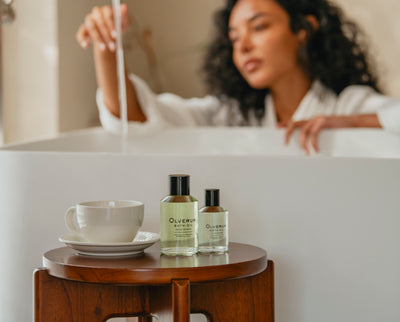Getting a Good Night’s Sleep

By Dr Nerina Ramlakhan, neurophysiologist, sleep expert, and author.
Getting a good night’s sleep is vital for our health and wellbeing; there is a reason why nature has designed us to spend a third of our lives sleeping. When we sleep well, we are restored on every level – physical, mental, emotional and spiritual – so we wake up feeling refreshed, focused and ready for whatever lies ahead.
But how do we achieve good sleep in a world that is so busy, noisy and filled with constant demands?
The key lies in the choices we make – from the moment we get out of bed to the time we get back into bed we are making a myriad of choices. Each choice we make, on some level, impacts on our nervous system so that we’re either setting ourselves up for deep rest or restless, fitful sleep. Paying attention to how you eat, drink, breathe, move, use your mind, relate to other human beings, whether you cultivate gratitude for even the smallest pleasures of the day can all lead you to the healing sleep that you deserve.
What you do before you go to bed, your wind down routine, can particularly enhance or hinder your sleep and this is where Olverum can help you to create the perfect bedtime routine that will help you to decompress and let go of the demands of the day.
Ideally, you need to aim to get into bed around 10pm every night – research shows that the sleep before midnight is particularly important for your health. But before you do so, why not use your bath oil and pillow sprays to create your optimal wind down?
And how do you do this?
Allow me to share with you how Olverum helps me to create my perfect bedtime wind down routine. Before I get into bed, I use the Olverum Restful Mist Pillow Spray on my pillows and duvet and then I close the door to my bedroom and allow the healing smells to permeate my bedroom turning it into a perfect sanctuary for rest and sleep. Earlier in the evening, and especially on those extra demanding days, I put a few drops of the potent Olverum Bath Oil into my steeped bath water and then I allow myself to simply luxuriate for at least 15 to 20 minutes. I like to do this a few hours before I get into bed to enable my body to cool down to the optimal temperature for good sleep.
We sleep when we feel safe and your sense of smell is an important guide so creating an environment that looks, feels and smells restful is an important route to feeling safe enough to let go effortlessly of the day – and sleep deeply and restoratively.
Take away top tips;
- Eat within 30 minutes of waking up
- Eating stabilises your blood chemistry so that you produce the hormones of well-being serotonin & oxytocin which later helps you to produce the hormone melatonin.
- If you struggle to eat within half an hour or rising, start small, It could be half a slice of toast with nut butter but try to include a source of protein in your breakfast
- Go to sleep earlier
- Going to sleep before midnight is so important
- Going to bed earlier at least 3/ 4 times a week helps us feel better, be healthier and look younger
- Aim to be in bed around 9.30/10. You don't need to be asleep but could be resting, journaling, meditating, reading a paper book.
- Drink plenty of water
- Ideally drink litre and half to two litres a day
- Need to be hydrated for our biochemistry, nervous system and sleep science to function optimally
- You can always build it gradually until you are drinking a litre and a half a day
- You will feel the benefits from being hydrated. Lay off the technology
- When you wake up, give yourself at least 20 mins before you reach for your phone.
- Designate certain times of the day and certain areas as technology free
- Reduce your caffeine intake
- Don’t substitute caffeine for food.
- Ideally no caffeine after 15:00
- Ideally no more than two cups of tea or coffee
Dr Nerina Ramlakhan is a renowned physiologist and sleep expert and regularly hosts sleep programmes and workshops. She is the bestselling author of several books about sleep, including her upcoming release Finding Inner Safety - the key to healing, thriving and preventing burnout (Capstone 2022), released 7th April 2022.
Web: www.drnerina.com





